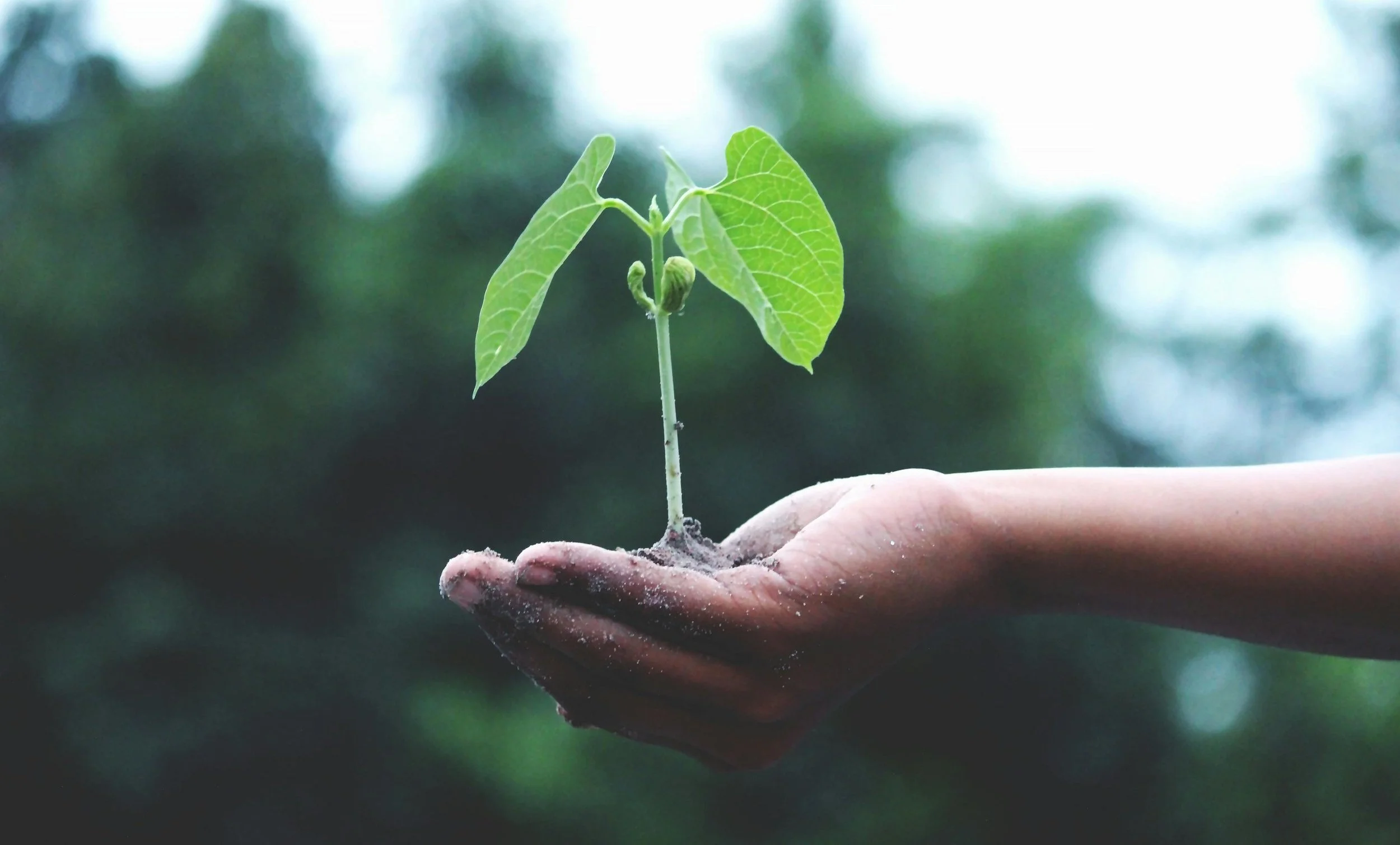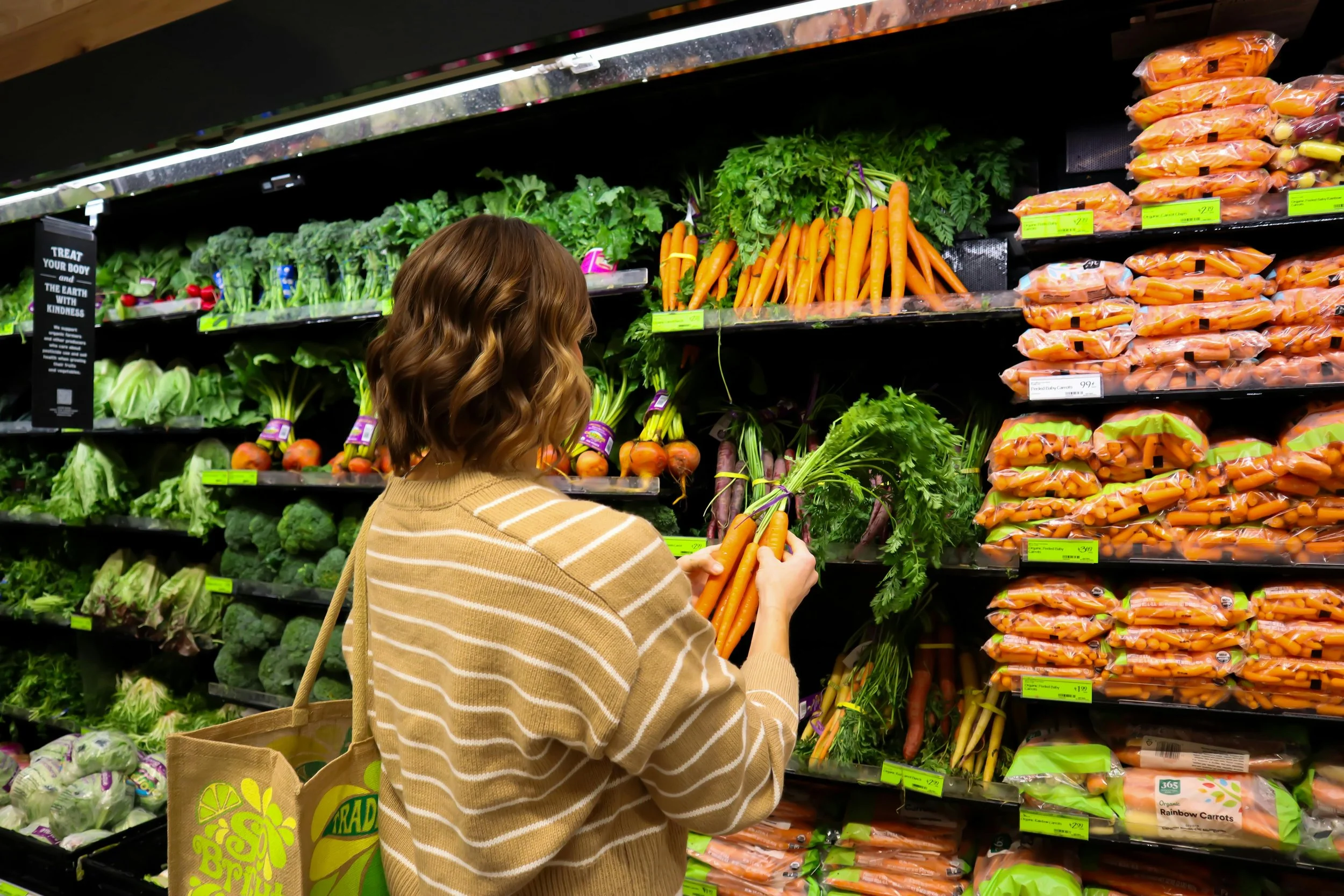3 ways to eat sustainably while protecting the planet
By: Kaitlyn
April 22 marks Earth Day, a time where we take action to support our planet and create additional environmental-friendly practices. One of these environmental-friendly practices is what you eat and how that food is being made. You might be thinking how something like food can make a large difference to our environment. However, according to the United Nations, "what we eat, and how that food is produced, affects our health but also the environment.”
As students we have very little time to prepare our meals, let alone think about how the food you are eating can poorly affect the environment. We understand the importance of intentional eating practices, meal prepping, and making healthy choices - but are we also aware of how to do these things in a way that benefits the planet? Check out the following 3 tips to help save the planet while also taking care of your health and well-being. 🌍🌱
Buy and eat local
Eating from locally owned businesses or markets has become even more important recently. By buying produce and other foods from local farmers or markets you are getting fresher foods and are also reducing the environmental impact of transporting this food to the stores. Shopping from local food markets can also be less expensive, especially for fruits and vegetables. Trade in shopping at that big box store and support a small business! Local products often come with fewer packaging materials, which means less waste – another great benefit of buying and eating from local stores or farmer’s markets. 🛒🌽🍅
2. Minimize food waste
Every April, you hear a lot about minimizing food waste, but rarely do you hear practical tips on how to actually do it. 🏡🍽️ Here are some easy ways that I minimize the amount of food waste in my household:
Shopping with a list: Sticking to my grocery list helps me avoid buying unnecessary items or items that I already have in my fridge. This helps me make sure that I am not wastefully throwing out items because they expire, or my family cannot eat it fast enough. Something else that helps me buying too much of something is using the “first in, first out” method, also known as FIFO. This means you can place older items at the front of the fridge and use them first to avoid waste.
Using leftovers: Leftovers are a lifesaver for the next day's lunch and a great way to reinvent meals with minimal efforts. Obviously, if food is no longer safe to eat, it should be thrown out. However, many people are unnecessarily throwing away perfectly good food simply because they made too much! Don’t be that person and save time making your lunch for the next day with leftovers!
Understanding best before dates: I used to be someone that would not eat or drink something if the date had passed because I thought it would be unsafe to consume. However, I eventually learned that “best before dates” are when a product isn’t at its peak quality and doesn’t mean it’s unsafe to eat. This helps not only limit the amount of food being wasted, but also limits the amount of money you’re spending on groceries!
Test your knowledge!
Minimizing food waste is a great way to help create a greener planet, but did you know that the clothes you wear can also have a significant impact on the environment? Challenge your understanding of eco-friendly fashion with this quiz ⬇️
3. Eat less processed foods
Not only is eating a lot of processed foods bad for your health, it is bad for the planet due to the carbon footprint they leave. According to an article by the BBC, “unprocessed, locally sourced foods, such as whole fruits and vegetables, have a relatively low carbon footprint.” This means that higher processed foods can leave more negative environmental effects. This doesn’t mean to stop eating your favourite fast food burger altogether, but knowing the effects of the food you’re eating is important! Eating out less can make an impact on yourself and the environment in the long run.
Your decisions at the grocery store play a role in the future of our planet. While choosing to grow your own food instead of ordering takeout multiple days a week may seem like a small thing, if everyone adopted this mindset, it could significantly reduce our environmental footprint and promote sustainability. Although, April is Earth Month, every day is an opportunity to make mindful food decisions and contribute to a greener planet for future generations.
Boost Your Environmental Wellness!
Every action counts when it comes to leading a more sustainable lifestyle. Looking to expand your knowledge on ways to take care of our planet? Take a look at these tips ⬇️



